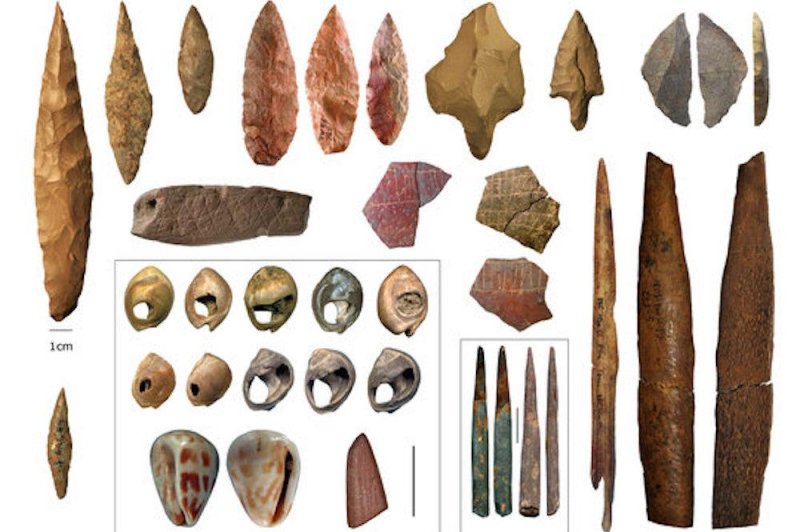The fragmented nature of early human evolution is reflected in the diversity of ancient tool technology. Photo by Eleanor Scerri/Francesco d’Errico/Christopher Henshilwood
July 11 (UPI) -- New research has offered an unprecedented look at early human evolution in Africa.
The study, which combined fossil surveys, genetic analysis and climate modeling, suggests early humans evolved in semi-isolated groups -- not as a large, cohesive population, as some assumed.
The ecological diversity found across Africa explains the fragmented nature of early human evolution, researchers argue. Both genetic signatures and the distribution of artifacts reflect a lack of connectivity among early human populations.
"We see indications of reduced connectivity very deep in the past, some very old genetic lineages, and levels of overall diversity that a single population would struggle to maintain," Mark Thomas, geneticist at University College London, said in a news release.
Interestingly, genetic patterns among other sub-Saharan animal species reflect similar types of fragmentation. Researchers believe the dynamic nature of the African landscape explains the phenomenon.
In addition to hosting a diversity of ecosystems -- arid and semi-arid regions abutted by dense rainforest, mountains and valleys, interwoven networks of lakes and rivers -- Africa's climate has regularly shifted over the last several million years.
As a result of these climate and ecological dynamics, early humans experienced cycles of isolation and adaptation followed by genetic and cultural mixing, scientists argue.
"Convergent evidence from these different fields stresses the importance of considering population structure in our models of human evolution," said Lounes Chikhi, researcher at the French National Center for Scientific Research. "This complex history of population subdivision should thus lead us to question current models of ancient population size changes, and perhaps re-interpret some of the old bottlenecks as changes in connectivity."
Modern humans didn't evolve in a single place or originate from a single population, according to the latest findings -- published this week in the journal Trends in Ecology and Evolution. The story of human evolution, the study's authors claim, is one of diversity.
"The evolution of human populations in Africa was multi-regional. Our ancestry was multi-ethnic. And the evolution of our material culture was, well, multi-cultural," said Eleanor Scerri, researcher at the Max Planck Institute for the Science of Human History. "We need to look at all regions of Africa to understand human evolution."















